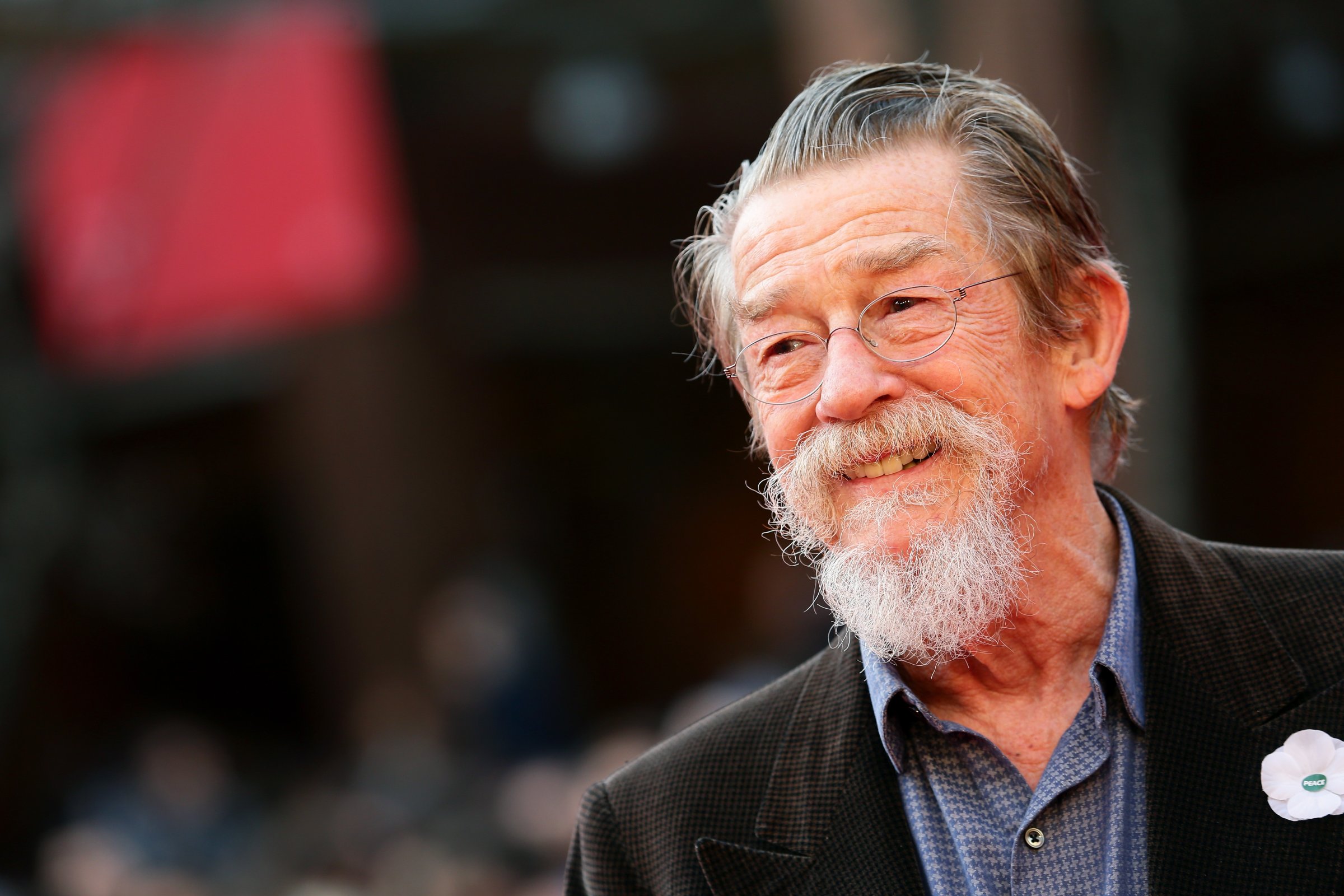
When I read the script for An Englishman in New York, a biographical movie chronicling the later years of Quentin Crisp’s life in New York, I knew I was keen to be involved, but I also knew I couldn’t go ahead without John Hurt on board.
When John first played the eccentric British author in 1975’s The Naked Civil Servant, he was advised not to play the part and told he would never work again. Even today, Hollywood is, to a certain extent, accepting of a gay story but only conditionally accepting of roles gay actors can play. So for John to play the character in the first place was extremely brave, but then to revisit the character 34 years later – where there is the danger of compare and despair – well, that was brave too.
When we met for the first time, to discuss the idea of An Englishman in New York, my initial impression of John was that he was quiet, kind and fiercely protective of Quentin’s honor. For some reason, probably from watching his previous films, I thought he’d be a reticent, suspicious and somewhat foreboding individual, but in fact he wasn’t at all.
We both felt that if we were to make the film then it had to be shot in New York – the real locations with an American cast. That was a deal-breaker. We also shared a similar vision of the story we wanted to tell and how we would retain the heart of Quentin’s character. For the chance to portray Quentin in the sunset of his life, we knew we had to reveal and show the man in a way that would never be seen in a documentary.
Although John’s initial reaction to doing the movie had been “let sleeping dogs lie,” we agreed to go on this journey together. To be truthful, I was terrified. How would I direct an actor who was playing a character that I had never met but he had? A character he had played in the past in an award-winning, seminal performance? In the end I just went with my instincts – I read lots of material about and by Quentin and it just worked.
John was an absolute pleasure to work with. He was totally committed to the part (he completely shaved his head for it) and he exuded such tenderness and warmth on set. Of course, he had a real understanding of what he needed to do to do his job well, bringing incredible nuance to the part as he has with all of his performances.
He would hold Quentin’s demeanour between setups and seemed to embody him. I remember on one occasion, after we had been shooting a street scene in the East Village, the crew had left to travel to the next location. I was stood there staring at my script when a resident came up to me and said: “Oh my god, did I just see Quentin Crisp walking down that road? I thought it was a f**king ghost!”. That was all down to John’s extraordinary ability to seem to melt into Quentin’s spirit.
On set, he was a real presence – and so effortlessly cool. He’d always be interested in what was going on – he’d put his hand on my shoulder and stare at the monitor, interested and excited. He absolutely understood that he was in the director’s hands, open to suggestions and performance notes.
Along with all the things magical that John was, he was tremendous fun. One of my favourite memories of shooting Englishman was when we shot in this disused building in the north of the city. It was the middle of a night shoot in August (it must have been about 90 degrees) and John walked into the room, ready for a poignant scene of Quentin’s self examination in a mirror. He was wearing nothing but underpants and a vest, with a full wig of lank, wispy, grey hair that hung down by his shoulders – he was playing Quentin at his most frail. He turned to look at me and began doing this hilarious, goofy, funky dance. It was such a glorious moment. Without a doubt I would loved to have work with him again, but sadly it never happened.
At the end of An Englishman, John, as Quentin, gives a speech to a group of gay men. “Neither look forward where there is doubt nor backward where there is regret. Look inward and ask not if there is anything outside you want, but whether there is anything inside that you have not yet unpacked,” he says. This speech has really resonated with me since; I feel that in all of John’s portrayals he looked inwards at his own emotional life and brought that to each role he played, mining his soul and unpacking it for the sake of his work and his creativity.
I remember the audience hearing for the first time his final speech in the film during a rehearsal on location in the Bronx. They were completely memorized. To me, that last scene was a co-joining of John and Quentin, actor and character. It really summed up the emotional inquisitiveness, poignancy and glorious mischievousness of John Hurt.
More Must-Reads from TIME
- Donald Trump Is TIME's 2024 Person of the Year
- Why We Chose Trump as Person of the Year
- Is Intermittent Fasting Good or Bad for You?
- The 100 Must-Read Books of 2024
- The 20 Best Christmas TV Episodes
- Column: If Optimism Feels Ridiculous Now, Try Hope
- The Future of Climate Action Is Trade Policy
- Merle Bombardieri Is Helping People Make the Baby Decision
Contact us at letters@time.com